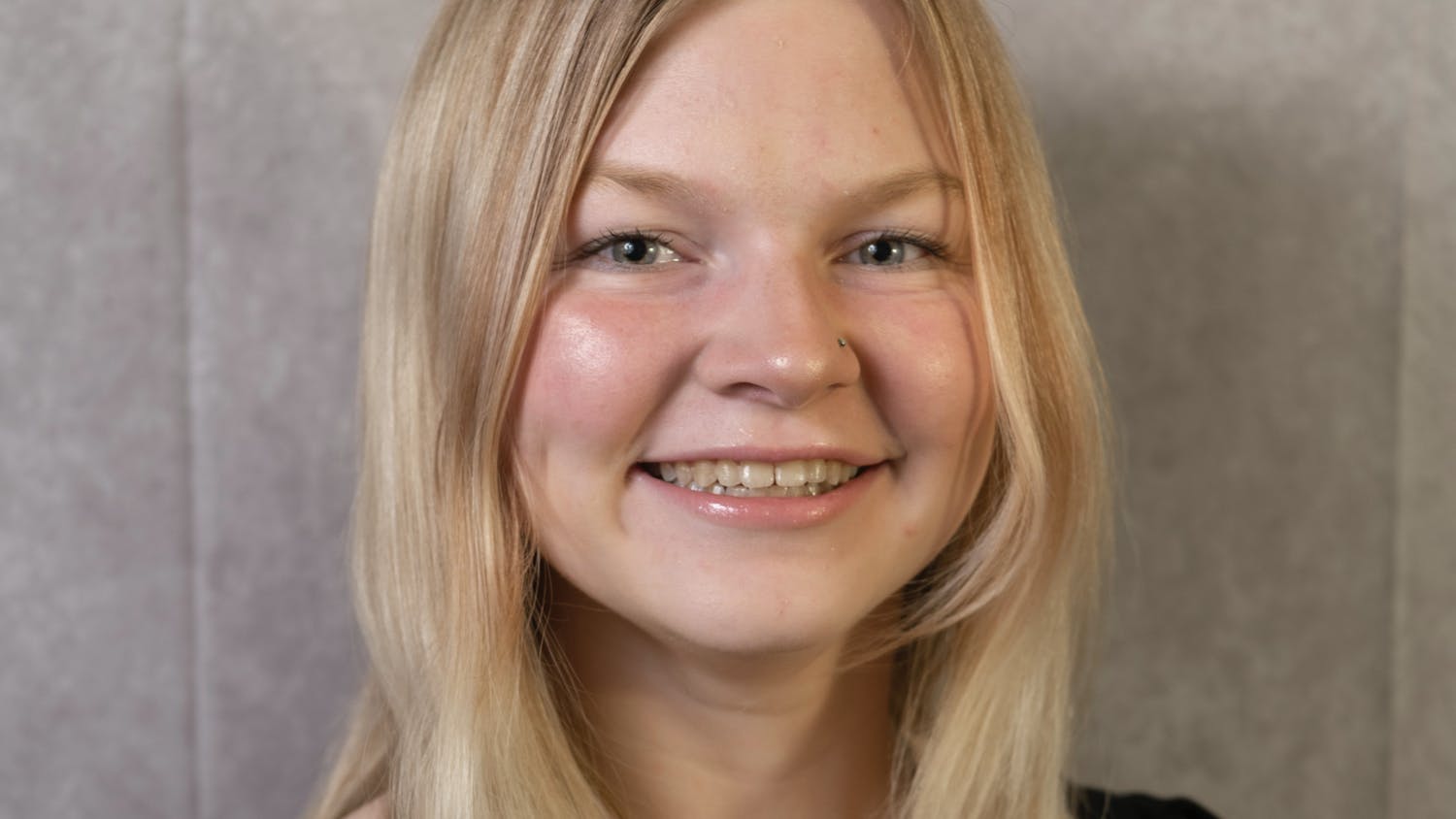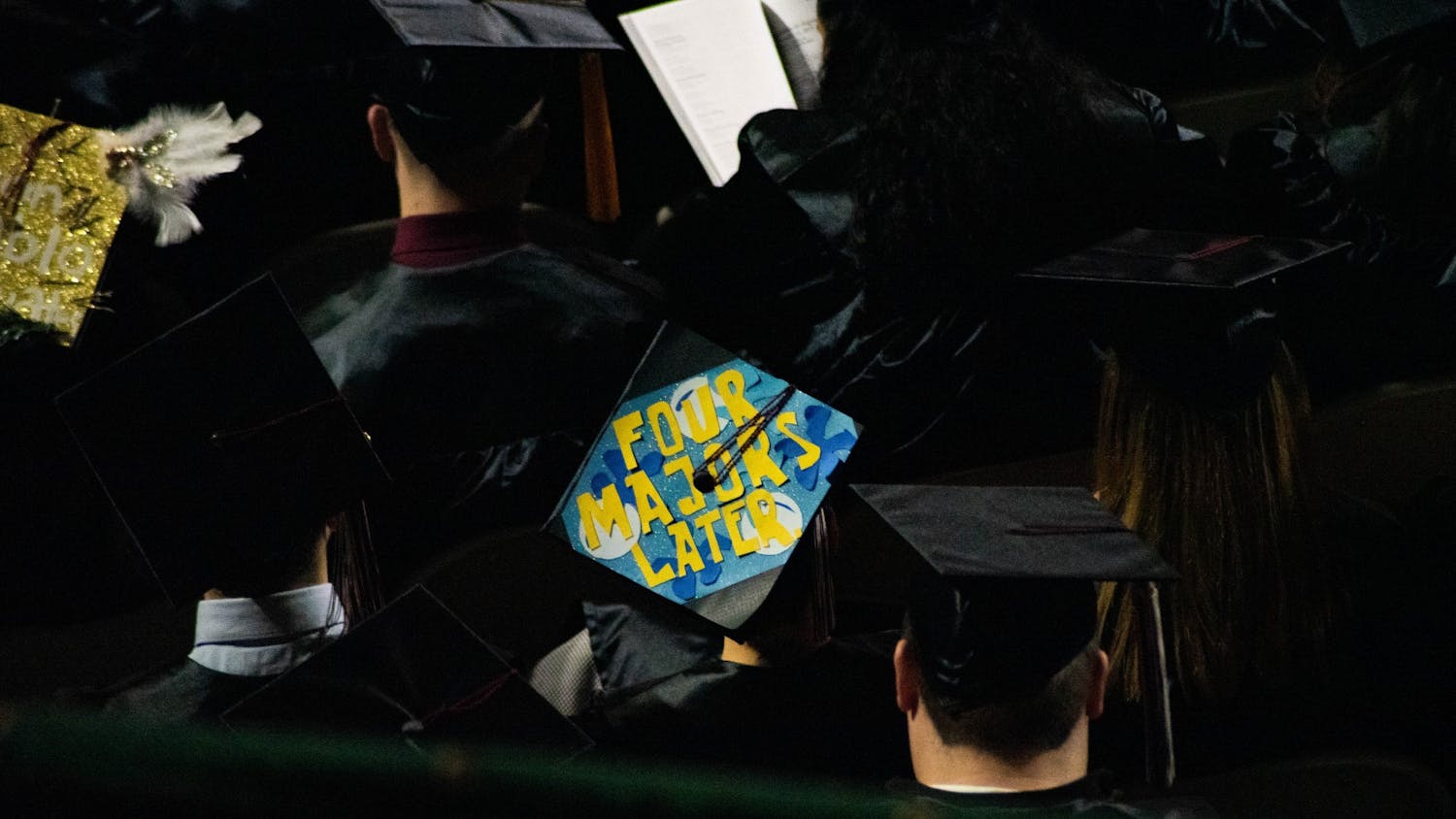Editor’s note: This is the third of a three-part series about the use of social media in Ohio Athletics. Posts have been taken unedited from Twitter and might contain grammatical errors.
Whether it was because of a picture of him in women’s apparel or a derogatory tweet about a teacher, D.J. Cooper has sometimes gotten more attention for what he’s done in cyberspace than in The Convo.
Cooper’s social media stumbles highlight the problems of balancing accounts as both young adults and athletes. Throughout the country, other programs have suffered worse pitfalls as players tweet their personal feelings without realizing the publicity of their updates.
“You got your phone right there,” said Aaron Fuss, director of basketball operations. “Some of our guys, and I bet everyone at their age is like this, that’s becoming how they communicate with people rather than speaking with them.”
During the summer, a photo of Cooper in a bikini top was posted via his old Twitter account (@DJCoop5), catching national headlines on sports blogs such as The Big Lead and Sports By Brooks. The incident sparked Cooper to respond, “A small joke … media will do anything for attention.”
The incident, along with other tweets from basketball players deemed out-of-line, led coach John Groce to unveil a month-long suspension from the social network last October.
“Guys have a responsibility when they put on that Bobcat uniform,” Groce said about the banning. “If there’s anything inappropriate that I get ahold of, there’s going to be consequences.”
While the players’ tweets have been more positive and mild-mannered since the suspension, Cooper tweeted: “Professie just admitted he was gay! Lolol #fagot,” presumably about one of his teachers. The matter has been dealt with in-house, Groce said.
"There have been others,” Groce said. “It hasn’t just been him. There have been many others that I haven’t been overly thrilled with that I’ve had to deal with.”
Last May, former Bobcat guard Armon Bassett tweeted the night of his arrest for punching a bouncer at Courtside Bar & Grill. He since deleted that account and made a new one. Similarly, last Nov. 5, when a bartender punched quarterback Boo Jackson outside the same establishment, football players instantly reacted with tweets.
“Social media situations, when you tweet something, it’s different than saying it,” Groce said. “It’s written, it’s out there. It’s words. And sometimes as 18- to 22-year-olds, they don’t get that.”
But in the college basketball world, Ohio’s slip-ups look minor compared to other big-time programs.
Last week, Mississippi State men’s basketball coach Rick Stansbury banned his team from using Twitter after guard Ravern Johnson tweeted complaints about the coach and playing time.
At Syracuse, guard Mookie Jones lashed out at a fellow player and then called out a reporter for posting Jones’ tweet on the reporter’s account. North Carolina, Villanova, Purdue and Missouri have also banned Twitter from their men’s basketball teams.
So far, Groce has dealt with the situations individually or on a team basis (the monthly suspension) and trusts his players enough to not issue a permanent team-wide ban as some programs have.
“I wouldn’t be completely opposed — if something was out there that I didn’t like — to banning it even longer or banning it for the team,” Groce said. “It’s on a day-by-day basis. To be responsible is what I want them to learn.”
Before dealing with a tweet he feels is out-of-line, Groce takes the context of the situation into account before reacting. A policy he likes is one that the NFL and NBA have in which players can’t tweet an hour before or after games.
Since the month-long suspension, the players have generally cleaned up their act, except for Cooper’s slip-up.
With the growth of Twitter and their social statuses on campus, the Bobcats are realizing it isn’t as private as they once thought, Cooper said.
“As time goes on, we start to really realize that it’s not private at all,” Cooper said. “People can just click your name even if they’re not on Twitter, or if they want to follow you, they can just click your name and see what you write.”
Fuss offers sound advice for how the players should use the medium as representatives of the Ohio basketball program.
“The one thing we’ve tried to do, especially lately, is to let them know that they are a brand as players,” Fuss said. “You’re brand ‘D.J. Cooper,’ and at some point or another, think of how you want to be branded to the world.”






